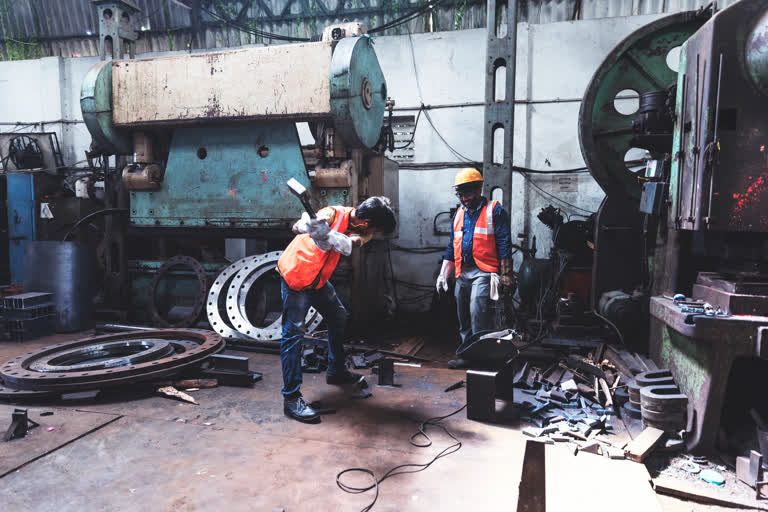Hyderabad: In 1978, when the legendary Deng Xiao Ping, forced open China’s doors to the outside world Indian industry was at par or better than China. The situation has changed since. The difference was made by private enterprise and competition. In the 1970’s when India was nationalizing coal, they were opening the sector.
The analogy was known to architects of India’s liberalization, but they failed to limit the role of the State sector that kept distorting the market and blocking efficiency.
Huge investments in power, port, steel, cement etc, remained at the mercy of officialdom who held the key to railway rake and coal availability.
Financial system and economy were end sufferers.
The Narendra Modi government has been keen to break open this stranglehold as is reflected in the opening of commercial coal mining to the private sector. The stress is now set to increase, as limiting role of the State sector is a top agenda of the "Atmanirbhar Bharat" campaign.
Important but not easy
Disinvestment hasn’t been easy in any country. Even the single-party ruled China faced major headwinds in the past. According to a 2018 article in Vox China, as in 1995, China’s State-owned undertakings suffered a net loss. Over the next decade, the number of such enterprises were reduced to half.
It is difficult to compare Indian scene with China due to differences in political systems and intent. Chinese State-owned majors acquired huge oil assets at high prices, as part of their resource consolidation plans in the last decade. Beijing has none to answer for the meltdown in the value of those assets.
The same shouldn’t hold good for India. Yet, the abuse continues. Upstream oil PSUs pick up exploration assets, irrespective of quality, to make bidding rounds successful. PSU financial services major plays stellar role in making government issues successful.
The worst part is, through them the officialdom establishes control over the entire value chain.
Read more:Is Indian Railways really ready for private trains?
For instance, huge investments by the private sector in the downstream (fuel retailing) suffered as the government kept prices of State-owned companies artificially low and mitigated their loss by paper money, oil bonds.
Electricity sector proves the same point.
Half of India’s 370-gigawatt electricity generation capacity is in the private sector. They burn the least amount of fuel to generate every unit of electricity. Yet, during the recent lockdown CIL deprived them, for supplying fuel on credit to most inefficient plants under the State governments.
Unnecessary State ‘domination’ has not only distorted the whole environment but vitiated.
Private investors in China do not face this. Beijing ensured that investors come and operate almost on a plug-and-play mode. In India, investor’s ordeal starts right from land acquisition to filling pockets of the shops and establishment officers of the local body.
The state is king here. Large capital can still enjoy some choices but the small and medium (that contributes 70 percent of China’s exports) entrepreneurs have little option. Quality and innovation are the worst sufferers.
Source of corruption
A European company which recently explored investment options in the railway space, has an interesting story to tell. They contacted an existing vendor of railways, to explore the supply chain. The vendor asked double the price for the same equipment.
Reason: To win railway tender, he undercuts and then mends his way by filling pockets.
The vendor cannot do it with a private entrepreneur, who may have his own ways to make extra bucks but not at the cost of compromising quality and brand value.
The European company dumped its investment plan. Internal assessment showed their product price will be higher than originally perceived and they will miss railway contracts.
The tendering process and the proverbial L-1 (lowest bid), often perceived as the epitome of transparency, is actually a source of many problems.
The problem will continue as long as the government-public sector-combine is allowed to dominate business.
Dismantling is only solution
Globally, and more so in China, the State sector helps meet the political strategic goals of the nation.
No one but an NTPC could be sent to set up an electricity generation facility, in a joint venture, in the highly troubled waters of Bangladesh. Let the State sector’s role be limited to core areas of decision making and operations be outsourced.
A top laptop brand from Taiwan, a top sportswear brand from the USA – do not make a single product.
At a recent high-profile meeting (which this columnist was privy to attend) attended by a former defence secretary and retired top brass of the armed forces; top executives of India’s private sector arms producers had only one submission to make.
If the US army can give orders to its private sector, if Indian Army can give orders to foreign private producers, and if Indian private manufacturers can participate in strategic projects abroad - why cannot they serve Indian armed forces?
Not to mention that the sector is suffering from orders while India ranks as a top arms importer in the world. Whatever is left for domestic procurement, is taken away by Ordinance Factory Boards. Defence sector officials agreed that for the sake of efficiency and quality, this should change.
(Pratim Ranjan Bose is a Kolkata-based senior business journalist. Views expressed above are personal.)



